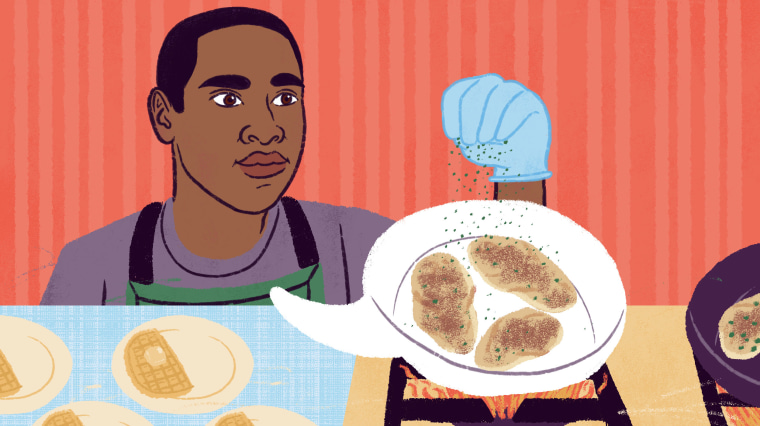In his smash debut album “Long. Live. ASAP,” musician A$AP Rocky raps about being in the pages of Vogue in his track “Ghetto Symphony.” In the remix to Doja Cat’s #1 hit “Say So,” featured artist Nicki Minaj raps, “Yes, I’m ghetto, word to Geppetto” in the middle of a lyrical list of her best attributes, right after proclaiming her rhyming prowess and just before her stilettos. These songs use the word “ghetto” to describe a place, personality and state of mind in positive ways. But it wasn’t always that way for that word.
For a long time, the word “ghetto” and its urban synonym “hood” have been used quite indiscriminately by Americans as being synonymous with “undesirable,” “scary” and “dangerous.” For many Black people today, just like the aforementioned musicians, the word has evolved to imply resilience above all else, as well as its more negative connotations. Nowadays, for Black folks in the food space, there exists more than a few minority-owned companies that are reclaiming these terms, transforming their once-loaded meanings to their advantage.
First, let’s delve into the history of the word 'ghetto.'
The word “ghetto” comes from early 17th century Italy and has an exact date of origin, at least for the type of location it describes. On March 29, 1516, the Venice ghetto was established by decree of Doge Leonardo Loredan one of the first places where people (in this instance, Jews) were forcibly segregated and surveilled because of their religious differences with the larger population.

Thus, this word has two probable origins: It might stem from the Italian word “getto,” which means foundry, because this very first segregated area was established on the site of a foundry in Venice; and/or the word “gettare,” which means to pour or to cast; or the Italian word “borghetto,” which means borough or hamlet.
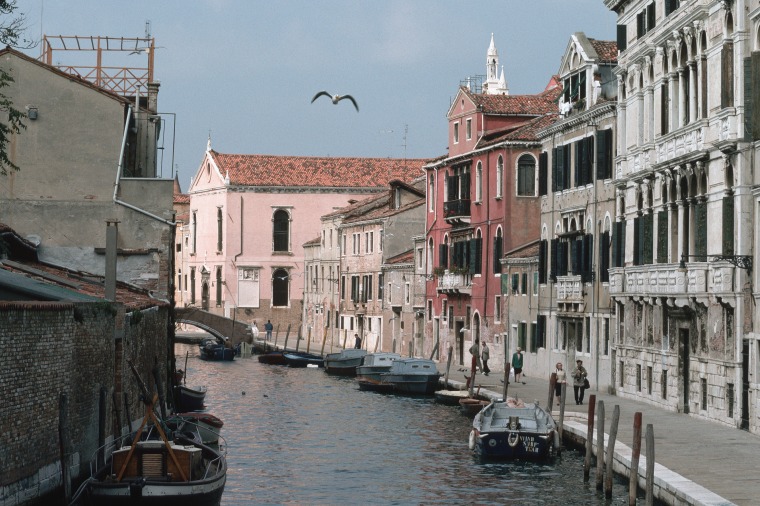
From Italy, the term was again used pejoratively to describe the new Jewish immigrant neighborhoods. During World War II, the word was used to describe the segregation and subsequent removal of Jews into concentration camps by the Nazis during the Holocaust. Before that, during Jewish emigration to the United States starting in the 1820s, it was used to describe enclaves in big cities where Jewish populations gathered, including but not limited to Philadelphia, Baltimore, Cincinnati, Albany and Manhattan’s Lower East Side, once nicknamed the “New York Ghetto.”
In the U.S. after slavery, Black people were segregated, albeit in different ways than Jewish communities. For instance, several American cities, starting with Baltimore, passed zoning ordinances blocking Black people from living on blocks where most residents were white. This, in addition to redlining, denial of home insurance and building public housing in areas that were already segregated, inspired the use of the term “ghetto” in reference to the Black American areas that formed from these factors.
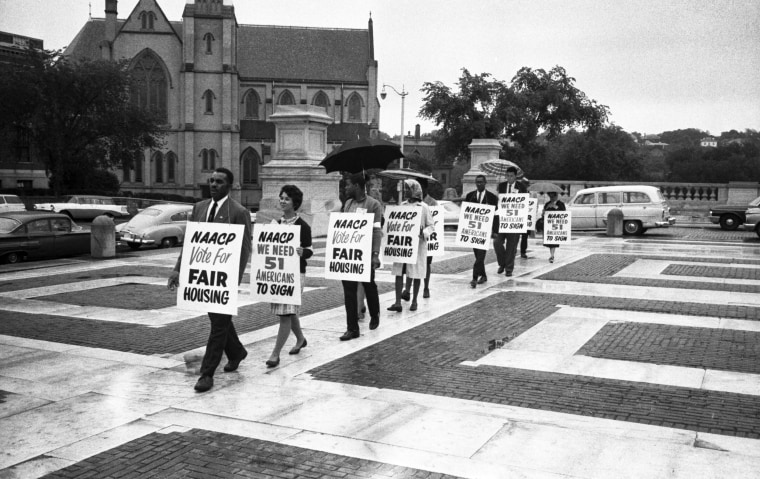
Since then, the word “ghetto” has taken on many new meanings and spawned derivatives such as “ghettofabulous,” “ghetto booty” and “ghettolicious” as part of African American English (AAE) or Black English.
African American English is an umbrella term for the many varieties of speech used by African American communities. If you’ve ever used the word “paper” to talk about money, “hood” to talk about the neighborhood where someone grew up or “bad” to mean good (or sang along to the Michael Jackson classic), you have used AAE. Still, words that originated in these communities are often misconstrued as indicating a lack of intelligence, when in fact AAE shares grammatical structures with many other languages people deem prestigious.
People are using ‘ghetto’ often in the Black community in many different ways, but one in particular is that people use it to describe being creative.
Dr. Rachel Weissler, University of Oregon
“People are using ‘ghetto’ often in the Black community in many different ways, but one in particular is that people use it to describe being creative,” Dr. Rachel Weissler, a sociolinguist at the University of Oregon told TODAY Food. Weissler works within psychology, linguistics and Black studies and is also an African American English scholar. “They might say, 'That’s a really ghetto version of XYZ.’ What it really means is that you actually were thoughtful.”
Weissler added that people have been using the word “ghetto” to mean that one worked within their means to create something that could get that job done. “So it’s actually a very creative mechanism,” she said.
An example from a Reddit post titled “Ghetto ingenuity at its finest” may point to what that means in practice. In the post, a photo shows a car with broken headlight and turn signal being “repaired” with a Tupperware container, an orange pill bottle and zip ties. While this is definitely not a legal replacement for car repair, those in the comment section could not deny its cleverness.
Another phenomenon Weissler mentioned was the unexpectedly large number of people using the word “ghetto” to describe innovative ways they used to brew coffee. It’s not just one person using the term, either: There are so many examples of people using the word to describe clever ways to get their morning cup of joe without traditional equipment.
“People maybe use ‘ghetto’ to poke fun at each other, but they’re not necessarily being unkind and judgmental versus someone outside of that community that even might be using ‘ghetto’ in a pejorative way,” Weissler said. This positive connotation is in sharp contrast to when non-Black folk have used AAE words to ridicule, whether intentional or not.
In 2020, a popular vegan site formerly named “Thug Kitchen” finally changed its name to "Bad Manners" after it was revealed that the founders Matt Holloway and Michelle Davis were white but writing anonymously using a slang ethnocentric style that was criticized as constituting "digital blackface." For instance, many of their posts were accompanied with captions like “Hydrate Mother F-----!” and “Antioxidants are all up in the B----!” (Correct usage in AAE, to be noted, would be “Antioxidants are all up in this B----!”)
In their apology, the founders said the word "thug" has been assigned "to Black people in an attempt to dehumanize them." They also admitted that they had the privilege of being able to use the word without ever having to deal with the repercussions of other people assigning it to them to dehumanize them and promised to “closely re-evaluate the content” the brand had written since its inception in 2012.
“Not only is there erasure happening in the source, but then there’s also variability in how people are treated,” Weissler said. “For example, if someone was using AAE in the workplace, they could get fired or maybe not even offered a job to begin with because they sound ‘hood’ or ‘ghetto.’ But then the same types of words being used by a white person might make them seem cool, approachable, relatable. We have to be very thoughtful about where language comes from.”
Nowadays, there are Black business owners reclaiming these words to describe their work in a distinctly positive way.
One such company embracing AAE in a celebration of the culture is Harlem restaurant VeganHood. “Hood,” like “ghetto” is a word that was once — and still is — used to denigrate Black people, and the restaurant’s distinctly fresh look and feel uses the word as a point of celebration and sustenance.
“Lanise and I have a nonprofit, and during COVID, we were experiencing having to close our doors,” Janine Smalls, co-owner of VeganHood with Lanise Herman-Thomas, told TODAY. Smalls said their nonprofit serves at-risk and underprivileged youth in their community 10 months out of the academic year and two months as a summer camp, so they couldn’t displace them. “To avoid that, we figured we better do what we do best. We’re vegans, we cook vegan meals, let’s prepare some.”
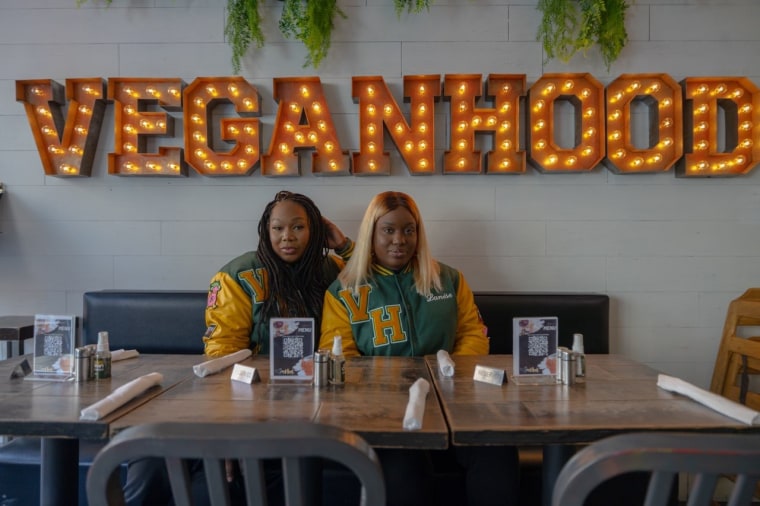
Smalls said she and Herman-Thomas started VeganHood for a couple of reasons. “Our neighborhood, our community, the people were dying at exponential rates, faster than any other community,” she said. “That was alarming to us.”
She also said that in addition to COVID, digestive issues disproportionately affect communities of color so she hoped providing a vegan option would help people with these issues.
“I think the mission was to bridge the gap between veganism and the hood, because in our communities, there’s a big misconception about veganism — everybody thinks it’s just greens and plants and it’s yucky when in reality it is so tasty, it’s so good,” Smalls explained. “It’s so much more than just plants and greens.”
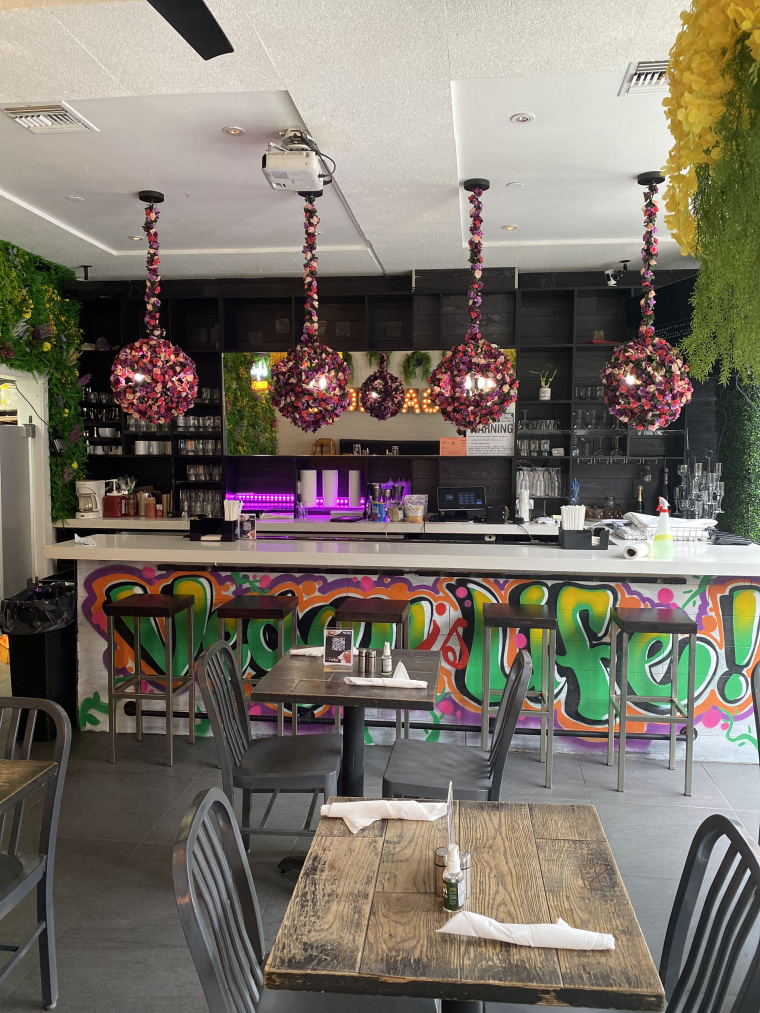
The pair serves vegan dishes that look as delicious as they are cleverly named at their eatery on restaurant row, the famous line of Harlem restaurants on Frederick Douglass Boulevard in New York City.
With dish names like “That’s Corny,” “Nah, Chill,” “Illmatic Burger” and “What’s Good?! Chix’n & Gravy,” Smalls and Herman-Thomas fully immerse their menu in the language of the city where they both grew up.
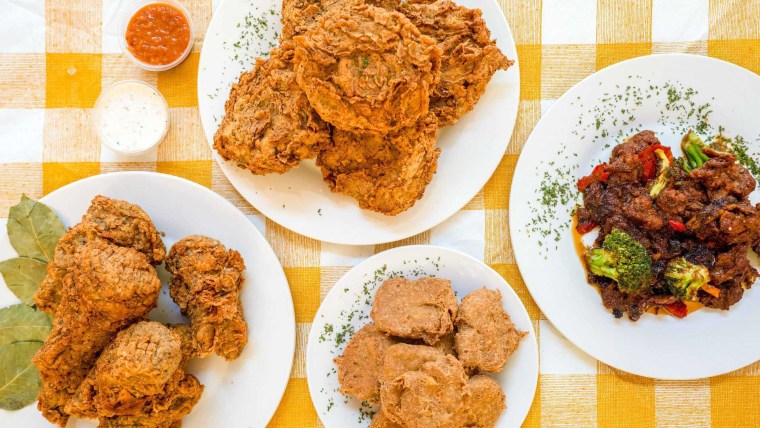
“I’m originally from Brooklyn, right? When people would find out, they would say, ‘Oh, that explains certain things. You’re so hood.’ I’m thinking, 'How should I take that?'" said Smalls, who added that she grew up in the Marcy Houses, a public housing project located in Bedford-Stuyvesant, and childhood home to hip-hop icons like Jay-Z. “It hurt because I’m literally from ‘the hood.’”
Smalls said she took that word, once meant as an insult, and wove it into her identity as something to be proud of.
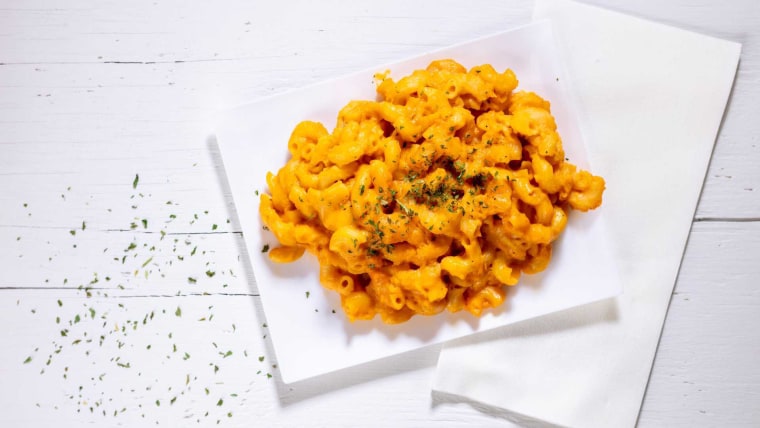
“I’m going to highlight and embrace it. I take it in and I’ll put a positive spin on it, you know?” said Smalls. “I’m edgy: I could sit at the conference table with the best of them or I can sit on a bench with the rest of them. It’s just like that.”
Another brand, Ghetto Gastro, is a culinary, art and design collective from the Bronx that has worked to merge food, fashion, music, art and design. Ghetto Gastro pairs “the beauty and grit from the streets” with the “aspiration and aesthetics of the finer things.”
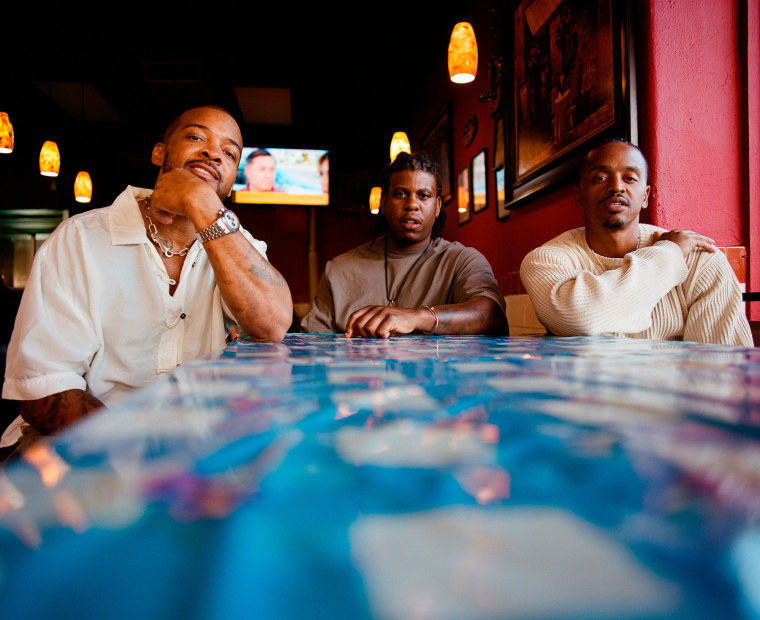
The trio of co-owners, Jon Gray, Pierre Serrao and Lester Walker, work around the globe and recently completed stints in Tokyo and also in Los Angeles where with Wolfgang Puck they cooked the food for the post-Oscars Governors Ball, the first time in 26 years that Puck brought on a collaborator for the high-profile event.
“Ghetto Gastro is named Ghetto Gastro because it’s a polarizing juxtaposition of things that allegedly don’t go together,” Gray told TODAY, adding that the name came to him after a long nap. “It sums up the ever-evolving project quite nicely.”
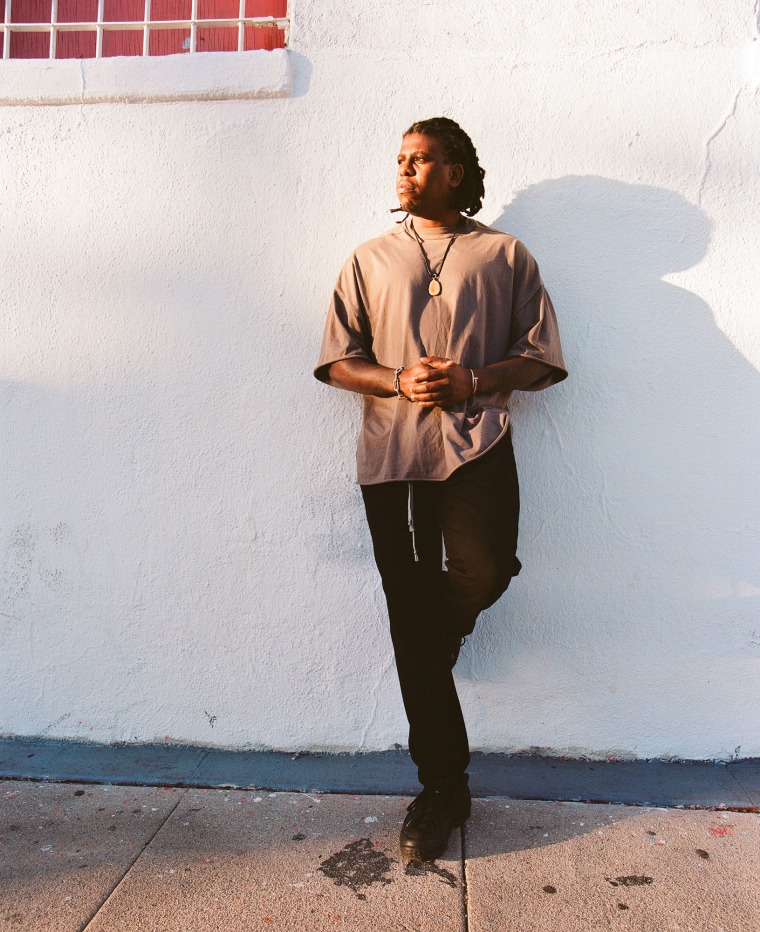
Gray said Ghetto Gastro is a celebration of the Bronx as a driver of global culture and blends influences from the African diaspora, ingredients from the Global South and hip-hop culture to create offerings that address race, identity and economic empowerment in a wholly new way. This can mean anything from working with fashion figures like the late Virgil Abloh, Nike and Cartier, to collaborating on a line of carbon-steel cookware with Williams-Sonoma, or releasing a line of appliances called CRUXGG with Target.
I’d like to believe that in a small way it’s encouraging people to think differently about the word itself and the people from neighborhoods like ours across the globe.
Jon Gray, Ghetto Gastro
Gray has a positive outlook when he thinks of the effect his company and its star-studded clientele has had on the negative connotations of words like “ghetto” in Black communities and beyond. “I’d like to believe that in a small way it’s encouraging people to think differently about the word itself and the people from neighborhoods like ours across the globe,” Gray said. “There’s a reason why great artists such as Rick James made songs about the ghetto.”
In 2020, at the start of the pandemic, Ghetto Gastro prioritized Bronx grassroot initiatives and mutual aid. For feeding their community, the group was nominated for the Basque Culinary World Prize. They recently completed their first cookbook, “Black Power Kitchen,” which is coming out this fall, and produced culinary experiences for Coachella, Spotify and others, all while proudly displaying the word “ghetto” in their name.
Gray said that the Rick James song, “Ghetto Life,” has stayed in his listening rotation through the years, and it serves as a summary of how rich the culture around the word is, despite being three decades old. In the track, James sings about “tenements” and “slums” with a distinctly optimistic flair, describing the resourcefulness and personality of the people who live there.
The lyrics indicate that persistence is the name of the game with a community so full of hope. At one point in the song, he sings, “One thing about the ghetto / you don’t have to hurry / it’ll be back tomorrow / so brother, don’t you hurry.”
